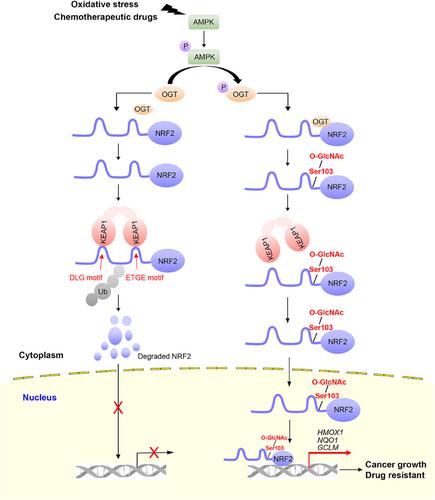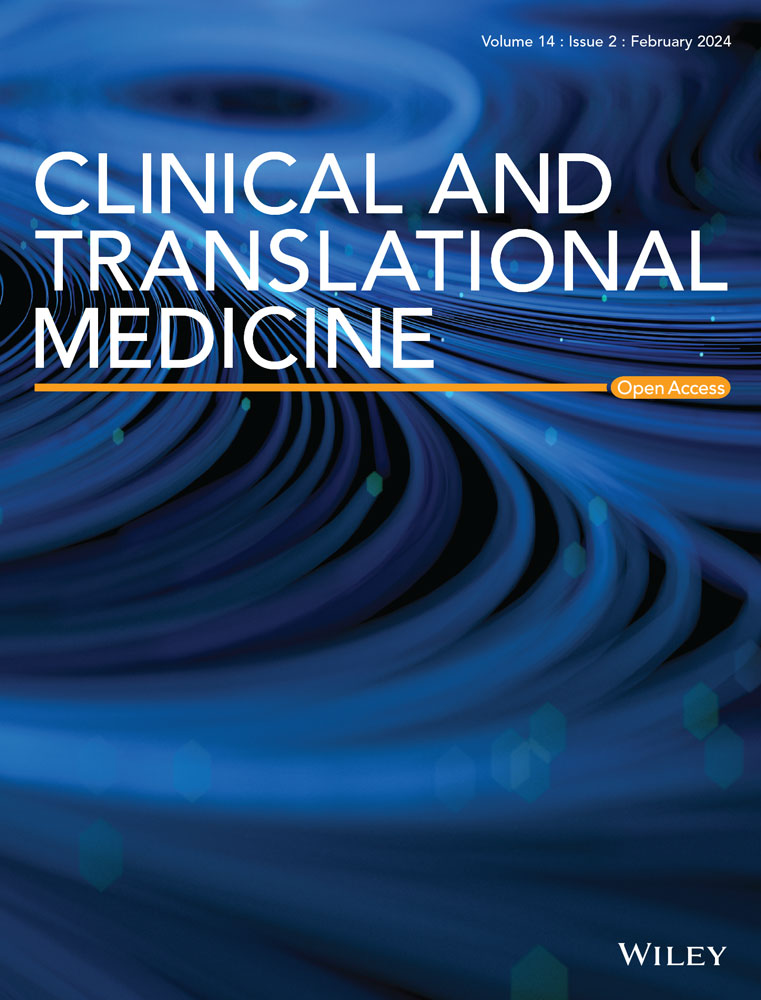O-GlcNAcylation promotes malignancy and cisplatin resistance of lung cancer by stabilising NRF2
Abstract
Background
The transcription factor NRF2 plays a significant role in regulating genes that protect cells from oxidative damage. O-GlcNAc modification, a type of posttranslational modification, is crucial for cellular response to stress. Although the involvement of both NRF2 and O-GlcNAc in maintaining cellular redox balance and promoting cancer malignancy has been demonstrated, the potential mechanisms remain elusive.
Methods
The immunoblotting, luciferase reporter, ROS assay, co-immunoprecipitation, and immunofluorescence was used to detect the effects of global cellular O-GlcNAcylation on NRF2. Mass spectrometry was utilised to map the O-GlcNAcylation sites on NRF2, which was validated by site-specific mutagenesis and O-GlcNAc enzymatic labelling. Human lung cancer samples were employed to verify the association between O-GlcNAc and NRF2. Subsequently, the impact of NRF2 O-GlcNAcylation in lung cancer malignancy and cisplatin resistance were evaluated in vitro and in vivo.
Results
NRF2 is O-GlcNAcylated at Ser103 residue, which hinders its binding to KEAP1 and thus enhances its stability, nuclear localisation, and transcription activity. Oxidative stress and cisplatin can elevate the phosphorylation of OGT at Thr444 through the activation of AMPK kinase, leading to enhanced binding of OGT to NRF2 and subsequent elevation of NRF2 O-GlcNAcylation. Both in cellular and xenograft mouse models, O-GlcNAcylation of NRF2 at Ser103 promotes the malignancy of lung cancer. In human lung cancer tissue samples, there was a significant increase in global O-GlcNAcylation, and elevated levels of NRF2 and its O-GlcNAcylation compared to paired adjacent normal tissues. Chemotherapy promotes NRF2 O-GlcNAcylation, which in turn decreases cellular ROS levels and drives lung cancer cell survival.
Conclusion
Our findings indicate that OGT O-GlcNAcylates NRF2 at Ser103, and this modification plays a role in cellular antioxidant, lung cancer malignancy, and cisplatin resistance.


 求助内容:
求助内容: 应助结果提醒方式:
应助结果提醒方式:


